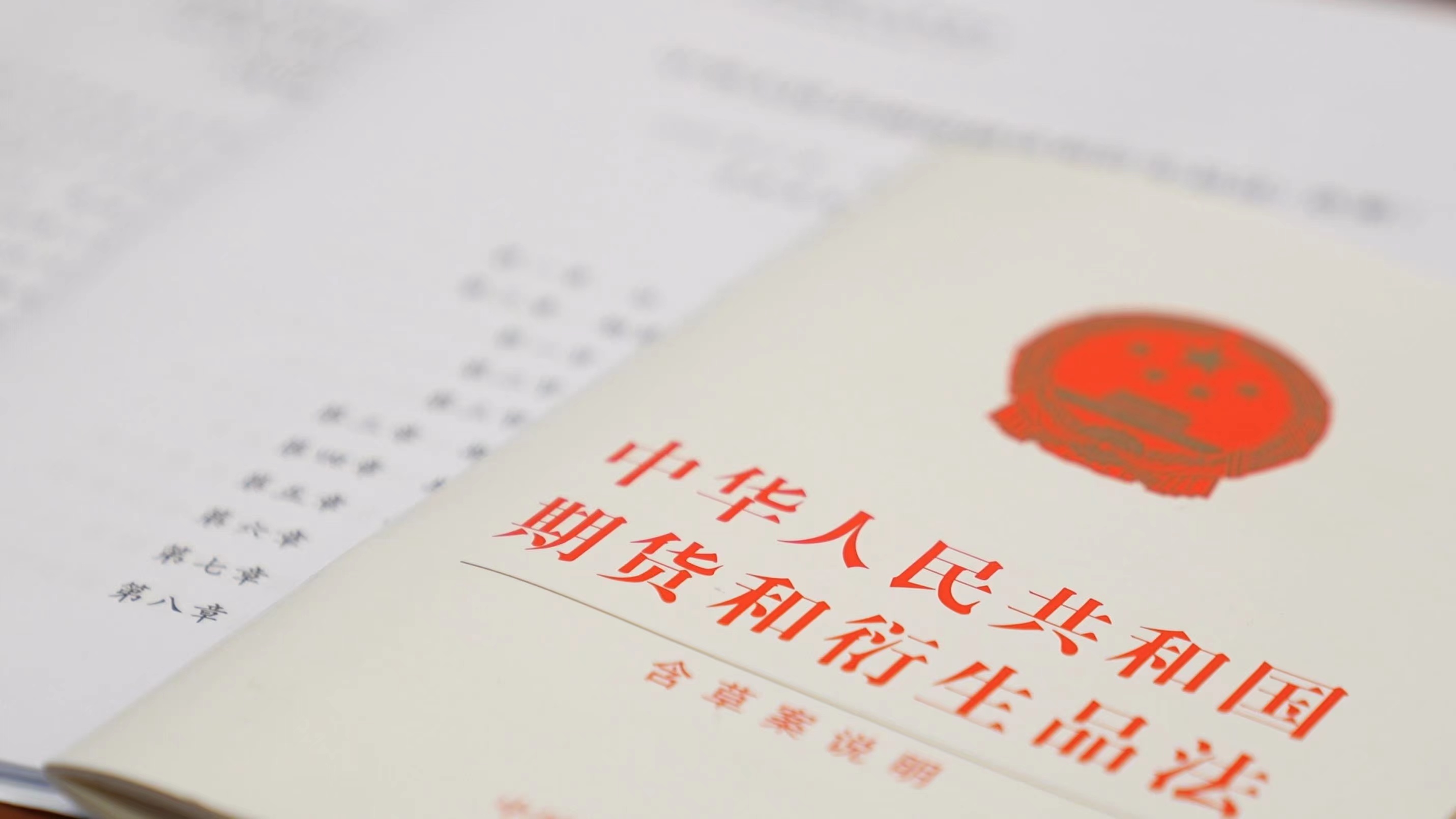03:14

China's new Futures and Derivatives Law, which came into effect on August 1, is the first law that seeks to regulate derivatives trading in the country. It is also one of the new regulations that has gained considerable traction both at home and abroad.
Part of the reason for that lies in the rapid development of the country's futures markets in the last few years. Nearly 65 new futures and options products have been launched in China during the last 10 years. By the end of July 2022, China had 96 futures and options products in total, including products covering sectors like agriculture, energy, and non-ferrous metals. Data released by the China Futures Association shows that trading volumes in the market have also been increasing steadily. Transactions during the first six months of the year rose 3.78 times over the same period in 2012.
To further deepen the development of the industry, China's Futures and Derivatives Law was approved at a session of the Standing Committee of the National People's Congress (NPC), China's top legislature.
"The Futures and Derivatives Law falls in line with the country's development strategy. China had considered including a law on futures trading in its 1993 development goals. After nearly 30 years of market practice and continuous attempts, it has finally come into existence,” said Wang Xiang, deputy director of the Economic Law Department of the Commission of Legislative Affairs of the Standing Committee of the NPC.
The new law will play an important role in China's financial market. "It provides a legal safeguard for the financial market and will promote its steady operations. It will also help prevent systemic financial risks and maintain financial security," Wang mentioned.
Industry experts believe that the new law will create more opportunities for China's futures and derivatives market.
"The Futures and Derivatives Law outlines the three functions of 'discovering prices, managing risks, and allocating resources' of the futures market. Over the past three decades, the futures industry has become more streamlined and regulated, but many still consider it a market for speculation. The new law will boost the confidence of professional investors, and help attract more institutional participation," said Hong Lei, chairman of China Futures Association.
China's futures market has been gradually opening to the outside world. At present, nine futures and options contracts are open to foreign investors, including seven futures and two options products. The new law also focuses on regulations related to cross-border transactions.
"The priority of the market's opening-up is to manage cross-border trading risks. Chapter 11 of the new law sets out regulations for both domestic and foreign investors to participate in cross-border transactions. Futures and derivatives trading are inseparable from the international market. The law shows the Chinese government's determination to speed up high-level opening-up of the derivatives market," Wang added.
The new law has also added a new legal safeguard for China's opening-up efforts. Hong emphasized that it will help promote the internationalization of more mature futures products and attract more overseas professional traders. That will help increase China's pricing clout and further enhance the "marketization, legalization, and internationalization" of China's futures market.

